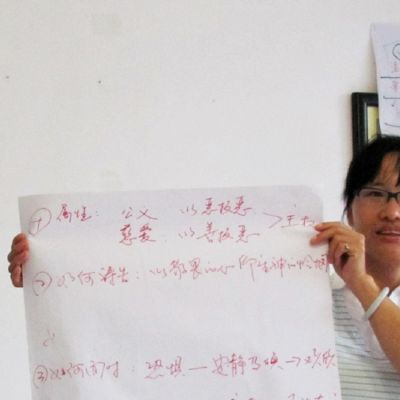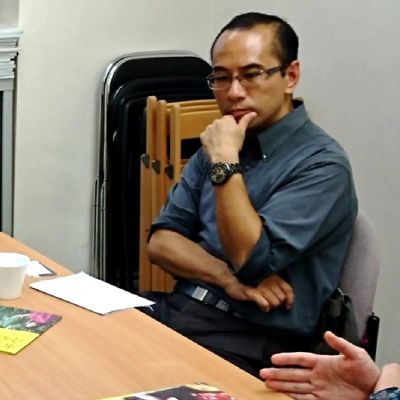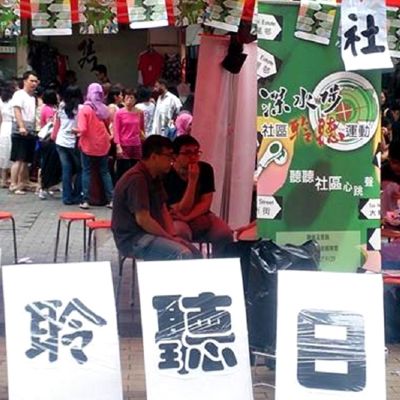Written by: Pastor Daniel Ding
During the past 10 years, the Church was able to integrate into the Chinese community through the government’s social service policy which encouraged non-profits to reach its residents. Yunnan was one of the pilot areas. Pastor Daniel Ding, Social Ministry Officer of Yunnan Christian Council, stressed that integration does not mean altering the truth we preach to fit in, but the challenge is to find a way to let our core values prevail.
Pastor Ding is going to reflect on Isaac’s faithfulness described in Genesis 26:1-32 and his experiences in the Christian service scene in Yunnan, and let us see how God has always been with us as we serve our community.
Isaac did not have a gleaming resume compared to his father (the father of faith), his son (Israel), and his grandson Joseph (second most powerful man in Egypt). However, his faith was apparent to others (v.28). He was far from a mighty warrior, but he was able to subdue the king of Gerar into seeking peace with him. He demonstrated the Church’s purpose in many ways, such as to live by the truth, to testify through actions, and to urge people to humble themselves before Christ.
Showing a Unique Faith—Obey to God’s Direction (vv.1-5)
As Isaac obeyed God’s direction (vv.1-3) and lived out a unique faith, others saw that God was with him (v.28). Churches in China should do the same in seeking God’s will, to restore God’s order through Jesus’ teachings, biblical principles, guidance of policies, and to bring glory to God.
Love is discussed in every religion including in Christian faith. So, how are we different from others on practising love? Such love is mentioned in Moses’ teachings: “the one who gathered much did not have too much, and the one who gathered little did not have too little” (Exodus 16:18) – trusting in the Lord’s provision and sharing with the minorities. In Jesus’ words, our righteousness has to “surpasses that of the Pharisees” (Matthew 5:20); besides spiritual routine, we should lead a God-and-people-loving life as the salt and light in the world (Matthew 5:13-14). The Church and its members should uphold what the Bible teaches and work to complement each other when serving the society as led by the Holy Spirit.
Social service should not be a trend-chasing or profit-seeking act, but it should be an exercise for the church to speak God’s truth and let people see the glory of Christ (2 Corinthians 4:4). It is not about responding to a forced mandate, but it is about responding to love of Christ willingly by following in His footsteps to spread the Gospel.
Relying on God’s Power of Creation—Trusting Him Completely (vv.12-13)
Isaac planted crops during a famine and reaped a hundredfold (v.12). He relied not on the environment or people, but on God and His power of creation alone, an act based on the truth: “Not by might nor by power, but by my Spirit” (Zechariah 4:6). Isaac was not gambling on the unknown, but he was seizing the opportunity to trust in God and making wise choices when utilising local resources.
Jesus always awed the crowd for a bigger purpose (Mark 5:20, 42; 6:51; 9:15), where men were asked to cooperate with him in faith and by contribution, like how he fed 5,000 people with five loafs and two fishes as a result of a pure-hearted child’s offering. Once the Church shifts its focus from what it lacks to what it could give, and believe firmly in God’s promises and keep on ploughing like Isaac did, we will definitely reap a hundredfold and with songs of joy (Psalms 126:5).
The Bible says, “Where there is no revelation, people cast off restraint” (Proverbs 9:18). When people have no restraints, there would hardly be any trace of God’s work. When everyone is his own king, everyone would do as they saw fit (Judges 21:25); consequently, they won’t be able to creating something useful in unity. Only when we uphold God’s mission as one and not be afraid to innovate and utilise all of our talents and resources, could we recreate the miracle of five loafs and two fishes.
Be merciful—Learning from Christ (vv.18-32)
Isaac’s multiple instances of letting go of his hard-dug wells (vv.18-22) might come off as a sign of weakness, but just as Jesus became humanity’s saviour by an act of “weakness”—crucified for sinners (John 12:32), Isaac actually showed mercy towards others.
Such mercy can also apply when we serve the community. Serving the community is a collective effort; an act of inclusion and empathy through God’s eyes towards every individual He created; and a display of a healthy functioning body of Christ (Ephesians 4:12).
When we face resource deficiencies and still share, it is like walking the extra mile with the needy (Matthew 5:41). Being kind to the poor is to lend to the Lord (Proverbs 19:17), and He will reward us (Matthew 6:6), as it is said: “It is more blessed to give than to receive” (Acts 20:35).
Isaac secured water at last (v.32). The Lord’s power, together with Isaac’s kindness towards others, were the reasons that humbled the king of Gerar. Hence, the elements of love, caring, sharing, cooperation, and respect are very important when we take part in community ministry.
As a member of the society, the church has to keep communicating, learning, and cooperating with the community, governmental, and non-governmental organisations in order to fully utilise its available resources. We should set our eyes on God (obey and serve humbly), build on concrete foundation (seeking His will and uphold biblical principles), have good fellowship (by loving each other in unity), and be His witness (by sharing and helping) to accomplish the Integral Mission.
Genesis 26 started with famine and ended in abundance (v.12). When Gerar and his adviser said: “We saw clearly that the Lord was with you” (v.28), they were amused by the testimony of Isaac. Isaac was far from perfect as he had also made mistakes out of fear (vv.6-11), but he was able to focus on God’s promises and utilised his potentials. His life encouraged us to live out our faith within our community, use our God-given talent wisely, to serve others and let them see clearly that the Lord is with us! May we usher people before God and bring peace to wherever we go.
Content of this issue
Written and edited by: Tsun Wan Yan, Jojo Poon The act of poverty alleviation often gives the impression of aid workers carrying with them gifts of livestock and funds sponsoring children and their education to some remote villages. However, have you ever considered that the local churches are better suited in bringing continued and sustainable development and support to the people in need? To address the root causes of poverty for the poor, we must help the poor learn how to fish instead of relying on outsiders’ help. To prevent dependency on foreign aid, which would consequently hinder community growth, the average span of a development project is usually five to 10 years, and the development organisation will…
Written by: Pastor Daniel Ding During the past 10 years, the Church was able to integrate into the Chinese community through the government’s social service policy which encouraged non-profits to reach its residents. Yunnan was one of the pilot areas. Pastor Daniel Ding, Social Ministry Officer of Yunnan Christian Council, stressed that integration does not mean altering the truth we preach to fit in, but the challenge is to find a way to let our core values prevail. Pastor Ding is going to reflect on Isaac’s faithfulness described in Genesis 26:1-32 and his experiences in the Christian service scene in Yunnan, and let us see how God has always been with us as we serve our community. Isaac…
Banner image: As a peer educator, Taslima (middle) often catch up with other girls in the community to learn about issues they are facing Every individual has their rights despite their social status, age, gender, and education level. According to the United Nation’s Convention on the Rights of the Child, every child should have the rights to survive and thrive, to be protected, to participate and make their voices heard. In Bangladesh, where 90% of its population are Muslims and 10% are Hindus, the caste system plays a significant part in the lives of Bangladeshis. People are categorised into different castes, and people who belong to the lowest social status group in the caste system are the Dalits,…
Written and edited by: Tony Chan To echo this issue’s theme: Church and Community Mobilisation, we interviewed three pastors who are heavily involved in caring and serving their communities. They are Rev. Anders Chan Ming-chuen (Associate Senior Pastor of Mongkok Baptist Church), Mr. Jonathan Au (Lecturer of Christian Ministry Institute; Deacon at Kai Tak Peace Evangelical Centre), and Ms. Teo Yun-sarm (Conference Parish Worker of The Methodist Church, Hong Kong). They share their experiences in mobilising the Church to serve the community. It was an enriching conversation, touching on topics such as Gospel and social services, preaching social-related topics sermons, and advocating for justice. Though each of them had different views and approaches on social service, they all came…
Written and edited by: Tsun Wan Yan The Church’s role in Hong Kong’s social development dates back to early missionary times. However, in recent years, churches in Hong Kong were often accused of being absent from major social discussions, except issues that spiked its interest. For this issue’s “TAKING ACTION” section, we interviewed the Organiser of the social organisation, HK Citizens, Daniel Man, and asked him how they mobilise churches to respond to current issues through Community Organising. The Beginning: Non-profit Work in England HK Citizens oragnises community to work together for common good, which involves mobilising churches to bond with their communities. And this is not something new to Daniel. Daniel started off as a social worker…







